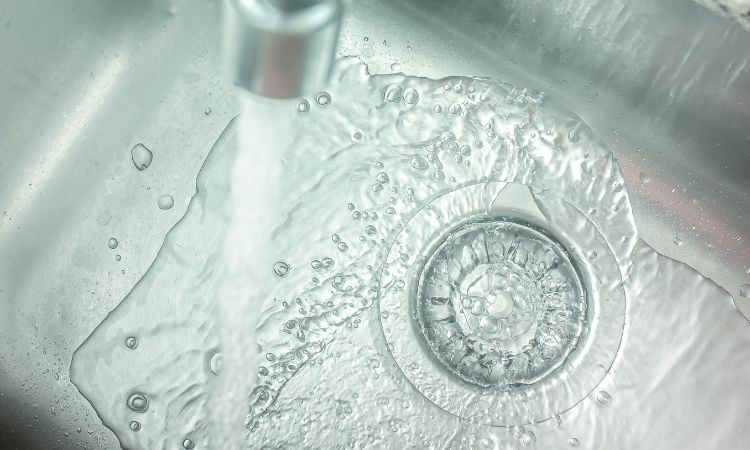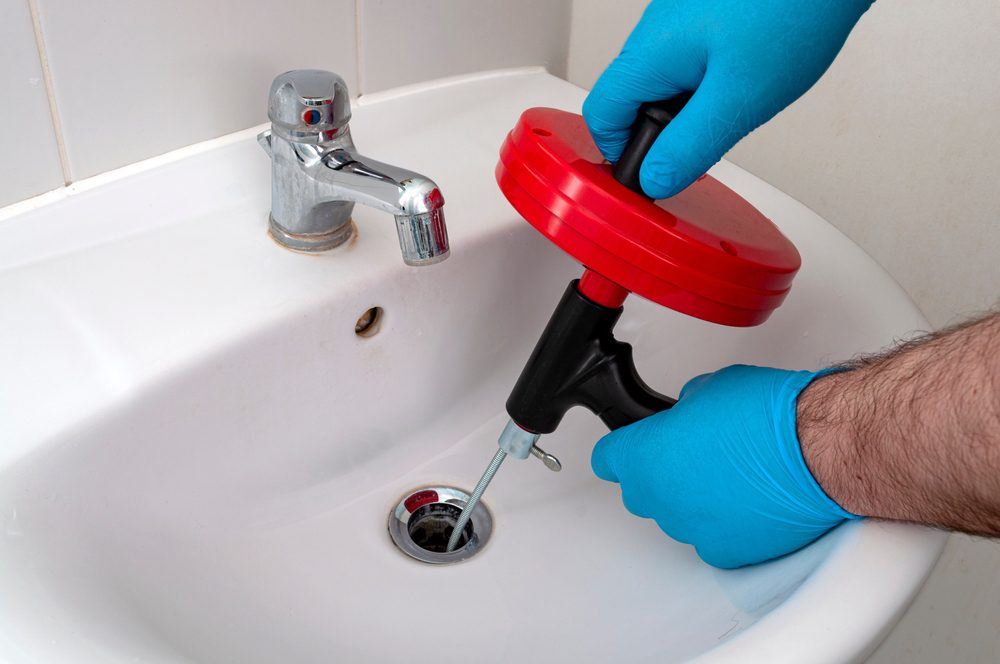Techniques To Quickly Fix A Slow-Draining Sink
Techniques To Quickly Fix A Slow-Draining Sink
Blog Article
What're your ideas about 7 Ways To Fix A Slow-Draining Sink Before You Call A Plumber?

Intro
We have actually all been there: You're cleaning your teeth or washing your hands, and you observe the water pooling in the sink. Rather than quickly swirling away, it lingers, transforming your once-refreshing morning regimen right into a mini overload scene. A slow-draining sink isn't just aggravating; it's typically an indicator of bigger pipes issues hiding under the surface area. Fortunately is that a lot of slow-draining sinks can be fixed with a little expertise, a few standard devices, and some patience. All set to tackle this project head-on? Allow's roll up our sleeves and dive right in.
Understanding the Causes of a Slow-Draining Sink
Before you start poking around in your pipes, it helps to recognize what could be creating the stagnation. Recognizing the source makes it less complicated to pick the appropriate solution.
Devices and Materials You'll Require
The right tools make all the difference. Fortunately, you will not need a fully equipped plumbing professional's van to do the job.
Step-by-Step Guide to Dealing With a Slow-Draining Sink
Now, allow's enter into the nitty-gritty. This detailed procedure will lead you with straightforward methods to recover your sink's water drainage.
Action 1: Remove and Tidy the Stopper
Frequently, the stopper (that tiny plug you push down to obstruct water) is the initial culprit. Remove it thoroughly and wipe any hair or substance caught around its base. Wash it thoroughly prior to putting it back in place.
Step 2: Utilize a Plunger to Remove Debris
Got that plunger ready? Position it over the drain and give it a couple of company pumps. The idea is to produce suction that can loosen any blockage. If you see littles debris floating up, you're on the appropriate track.
Step 3: Attempt a Drainpipe Snake or Cord Hanger
If the bettor does not do the trick, it's time to draw out the drainpipe serpent. Delicately feed it right into the drain and twist as you go. You may really feel some resistance-- that's most likely the clog. Maintain twisting and pulling up until you remove the obstruction. If you do not have a drain serpent, a corrected cord hanger can operate in a pinch.
Step 4: Apply a DIY Drain Cleanser
An all-natural cleaner made from cooking soda and vinegar can break down residual crud. Put half a cup of cooking soda right into the drain, adhered to by half a cup of vinegar. Allow it fizz for about 15 mins, then flush with warm water. This chemical reaction commonly does wonders for minor blockages.
Step 5: Rebuild and Evaluate the Sink
Put everything back with each other and run the tap. Does the water now swirl away at a commendable speed? If yes, give on your own a pat on the back. Otherwise, don't anguish-- there are still a few more tricks up your sleeve.
Vital Tools for DIY Repairs
A bettor is your best starting point. A tiny, sink-sized plunger creates suction that can dislodge small blockages. For more relentless obstructions, a drain serpent (often called a plumbing technician's auger) works marvels. A set of handwear covers, a flashlight, and possibly a pair of protective goggles are likewise convenient.
Advised Cleaning Solutions
Moderate meal soap and warm water can aid break down oily accumulation. A combination of cooking soft drink and vinegar is a tried and true natural home remedy, and chemical cleaners provide an even more green method. Maintain chemical drainpipe cleaners as a last option, as they can be severe on your pipes.
Common Perpetrators Behind Slow Water Drainage
So, what's blocking things up? Typically, it's a blend of daily particles-- assume hair, soap residue, tooth paste residue, and leftover food particles. Over time, these little bits collect and cling to the pipe wall surfaces, slowly narrowing the flow and making it harder for water to pass through. Sometimes, natural resource from tough water can likewise add to the crud, producing the perfect tornado for stubborn obstructions.
When is it Time to Act?
If you see the water draining slower than common, it's a good idea to intervene quicker instead of later on. Waiting too long can cause complete obstructions, undesirable smells, and even pipe damages. If the water takes more than a few seconds to clear out after switching off the tap, consider it a red flag and get ready to place on your DIY hat.
Security First: Preventative Measures and Prep work
Prior to you launch into unclogging setting, think of safety and security. You're handling potentially dirty water and debris, so slip on a set of handwear covers. If you're making use of chemical cleansers, make certain the area is well-ventilated and comply with the guidelines on the tag.
Protective Gear and Work Space Arrangement
Put down some old towels or cloths around the sink area to capture splashes. Eliminate any kind of products that may get in your means, like soap dispensers or tooth brush holders. Ensure you have good lights-- get hold of a flashlight if needed.
Alternative Techniques for Stubborn Clogs
Not all obstructions are produced equivalent. If your sink still refuses to coordinate, think about these different services.
Baking Soda and Vinegar Approach
We currently touched on this, however it deserves keeping in mind once more. This gentle, green approach is safer than chemical cleaners and usually quite efficient.
Enzymatic Drain Cleaners
Enzyme-based cleaners use natural microorganisms to absorb raw material. They're a superb selection if you're aiming to stay clear of extreme chemicals. Simply bear in mind, they may take a bit longer to work their magic.
Chemical Drain Cleansers: Advantages And Disadvantages
Chemical cleaners can blow up with tough blockages quick, however they're not without drawbacks. They can produce warm and fumes, damage pipes if made use of exceedingly, and present environmental threats. Use them sparingly, and constantly comply with the instructions meticulously.
Safety Nets to Maintain Your Sink Flowing
Avoidance is the best remedy. By embracing a couple of basic habits, you can keep your sink from decreasing to begin with.
Normal Cleaning Practices
Clean down the sink container and component location frequently. Get rid of hair or food fragments prior to they have an opportunity to wash down the drainpipe.
Staying Clear Of Damaging Substances Away
Reconsider before dumping coffee grounds, grease, or fibrous veggie scraps down the sink. These perpetrators cling to pipe walls, producing obstructions gradually.
Routine Maintenance Checks
Schedule a fast month-to-month assessment. Run hot water via the sink for a couple of mins, taking notice of the flow. If it appears slow, act fast prior to it becomes a full-blown obstruction.
When to Call an Expert Plumbing
Occasionally, regardless of just how hard you try, that obstruct just won't move. That's when it's time to bring in the pros.
Indicators That Suggest a More Serious Problem
If your sink drains gradually despite multiple efforts, or if you discover water supporting in other fixtures (like your shower or bathroom), you may have a much more severe pipes concern hiding much deeper in the system.
Balancing Do It Yourself Initiatives with Expert Aid
While do it yourself can conserve you money and provide a feeling of accomplishment, there's no pity in calling a specialist. A professional plumber can examine your whole pipes setup, guaranteeing there's no underlying damage or long-term problem that could cost you much more down the road.
Comparing Prices and Long-Term Solutions
Prior to choosing, take into consideration the big picture. An economical, quick fix could fix the issue temporarily, but purchasing a more long-term solution can save you money and stress in the long run.
Evaluating the Expenses of Do It Yourself vs. Expert Repairs
DIY repairs usually cost little more than the rate of a plunger or a container of baking soda. Specialist services, on the other hand, included a cost but may stop repetitive concerns and costly repair services later on.
Buying High Quality Fixtures and Upgrades
If your sink's layout contributes to frequent clogs, it might be worth updating to higher-quality fixtures or altering the plumbing layout. Consider this a financial investment in your house's performance and comfort.
Final thought
A slow-draining sink can seem like a small irritability, however it's often an indication that your plumbing requires a little TLC. By comprehending the origin, using the right tools and strategies, and committing to basic safety nets, you can maintain your sink moving freely. And when all else falls short, never ever think twice to call a professional-- your home's plumbing is worth the investment in care and upkeep.
Three Common Ways to Fix a Slow Drain
Baking Soda Method
Boil a full pot of water. Measure out cup of baking soda and pour it down the drain. Then take cup of the magical cleansing substance known as white vinegar and drop that down there too. Allow the mixture to fizz in the drain for five minutes as the vinegar and baking soda combine. Now dump in that whole pot of boiling water. This combination of cleaning substances should clear out anything that is causing your sink to drain slowly. If it doesn t...
Zip-It
If the baking soda method doesn t clear out your drain, it may be because a significant amount of hair and/or other debris has collected there and you need to remove it. Purchase a Zip-It tool at any home improvement or hardware store and insert it into your drain. It will catch any collected hair or debris that s blocking the flow of water. Pull it out. If it s got a big clump of hair, etc. on the end, you ve probably got your culprit.
Drain Cleaner
If these methods don t work, there is the standard drain cleaner that you can also buy in a hardware store or even your local grocery store. It s better if you can use a household solution, but these drain cleaners often work in a pinch. They re very simple to use. You generally just dump them in your drain and wait. If even this method is not effective, it may be time to call the plumber.
https://www.mrrooter.com/oneida/about-us/blog/2017/july/three-common-ways-to-fix-a-slow-drain/

Do you like more info about ? Try to leave a remark down the page. We'd be happy to see your insights about this write-up. In hopes to see you back again in the near future. Liked our piece of writing? Please share it. Help someone else check it out. We cherish your readership.
Request Service Report this page